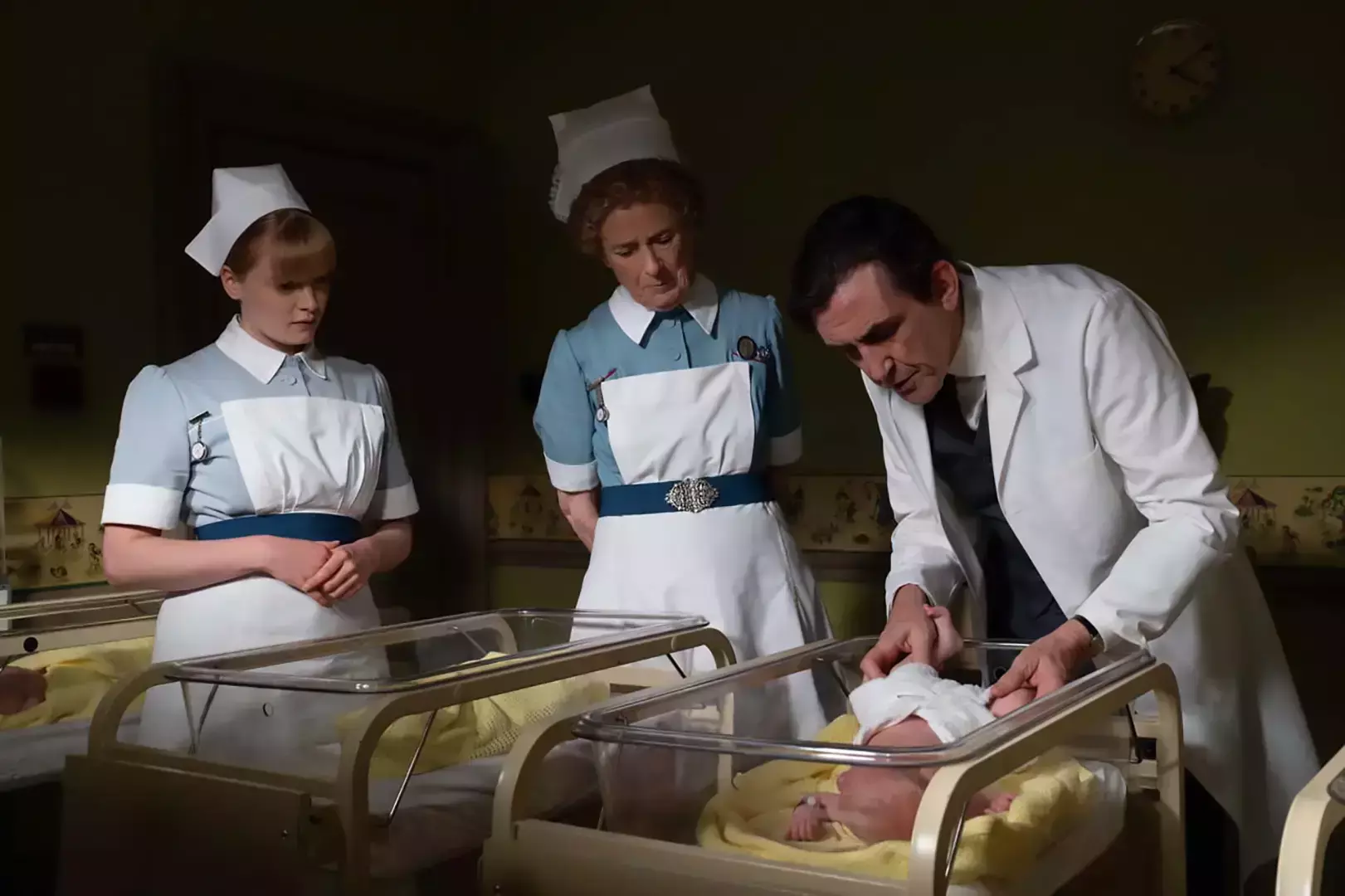Truer words were never spoken than those by the narrator, Jennifer Worth (Vanessa Redgrave) at the start of Episode 3: “Too often in life we take things for granted. The simple essentials of our days – work, light, food, choice, money. We neither question its source nor reliability. We assume it is all there forever and there is no need to earn or to cherish.” This episode’s storyline of the baby born with congenital hip dysplasia (CHD) bridged those words for me.
Where our hip and pelvis join together there is a typical “ball and socket” joint. Here, the top part of our long thigh bone (the femur) fits snugly into a recession in the pelvis (the acetabulum). With CHD, this ball and socket joint doesn’t form correctly in utero and can only be detected upon examination after birth. While there is no one root cause for CHD, there are risk factors, such as being female or the firstborn of the family. Other risk factors also include being situated in breech position in utero (coming bottom instead of headfirst at birth), having a family history of CHD, or possessing any condition that may limit baby’s space in utero (e.g. uterine walls that can form which then subdivide the uterus making smaller “compartments” inside that limit baby’s space.)
The baby in this episode was breech, firstborn, and female. The positive thing regarding the treatment of CHD is that wearing a body brace or harness – a soft implement that helps the “ball and socket” fit – for generally the first six months of a baby's life will usually solve the issue.
It was traumatic for the baby’s mother to have others see her baby in the full-body brace, so much so that she considered not using it at all. Every parent assumes and expects that their baby will be “perfect.” This is particularly true for those who arrange their lives in such a way that they establish their careers, their long-term relationships, and perhaps purchase their first home – culminating in the point that they plan out their pregnancies after achieving all of those accomplishments.
Planning is great; everyone should have the opportunity to plan their reproductive lives, though this is unfortunately not the case for too many women. That said, the false thinking surrounding that life paradigm is that when that baby eventually does come along, he/she will be absolutely perfect in every single way. As we know, however, Mother Nature doesn’t subscribe to our ideologies. Though every baby is perfect in my eyes, sometimes babies are born as what society would consider “less than perfect.” When that happens, often the reaction is that of the mother in this episode. Thankfully she was able to come around with time and guidance, to where she could see past the CHD and to the beauty of her new baby.
The other important topic in this episode was that of Fred Buckle (Cliff Parisi) who contracted tetanus in a very typical way. As noted in the episode, while we associate tetanus with a cut from barbed wire or a rusty nail, tetanus spores are everywhere around us, particularly in the soil. Most of us really don’t give tetanus a thought because we have never seen anyone with an active infection. In fact, it’s reported that there are only around 30 cases per year in the US; however, countries like Pakistan, India, and Somalia have much higher rates. As represented by Fred’s character, someone with an active infection displays the muscles of the jaw and face “lock,” which is where the term “lockjaw” comes from. They also experience excruciating body muscle spasms.
Because we have had tetanus immunization since the early 1920s, there are few people still living who have seen its devastating effects firsthand. Watching this brought up the current hesitation around vaccination that we have seen in recent years, particularly regarding COVID and seasonal influenza vaccination. It’s a separate and lengthy discussion to delve into vaccination hesitancy – I’ll save that for another time. Suffice it to say that the reason that we no longer see many horrific conditions that caused such devastation in the past – including polio, measles, and smallpox – is precisely because of vaccination. No matter which side of the argument you rest on, that is an indisputable point.
